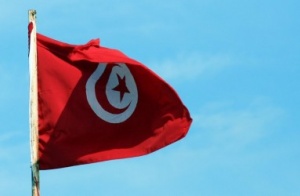Stuck in the Sand: Tunisian tourism seeks way forward

When Zine al-Abidine Ben Ali fled Tunisia – the county he had ruled for 23-years – in January his departure was greeted with scenes of jubilation across the country. Power, it appeared, was flowing back into the hands of the people, where it rightfully belonged.
It was to be the start of the Arab Spring, with dictators across the Middle East – from Egypt to Bahrain, Syria and Libya the next dominoes in line to fall.
Now, six months later, these first assumptions, while still valid, have been tempered with a hint of cold reality. The sacrifice required to drive out the tyrant – not least to the tourism industry – has been higher than imagined. Tunisia remains in stasis, waiting for elections scheduled for October to shed light on the future direction of the country.
Until then, there is little to do but wait.
But the costs are mounting each day. Tourism – in the key coastal resorts of Sousse, Monastir, Mahdia, and, most importantly, Hammamet – has fallen sharply as the country moves into the key summer season. Visitors are reluctant to visit a destination they see as in turmoil – with little respite in sight.
In one sense there is little Tunisia can do about this. Fickle holidaymakers have taken a view that the whole Middle East is presently unsafe, deciding instead to venture elsewhere. Turkey, for one, has benefited enormously from the unrest in the region, while Mediterranean destinations – including Spain and Greece – have seen an up-tick is visitor numbers this year as sun seekers look to beaches elsewhere.
Libya – the biggest inbound market for Tunisian tourism – has also been rocked by its own attempted revolution. Cruise ships are also avoiding the area as battles continue to rage between NATO and forces loyal to Colonel Gaddafi.
But Tunisia is also partially responsible. Momentum has been lost among those calling for change – with the country waiting nervously for leadership. Elections planned for July were put back until October 17th in June creating further uncertainty, while take of an Islamist victory has done little to dispel fears among potential holidaymakers.
Private sector operates have been cutting prices in an attempt to woo visitors, while the Tunisian National Tourist Office (TNTO) has recently launched a glossy ad campaign in a number of key European markets. However, such attempts are unlikely to have much impact during a time of such stress.
On the Ground
As is often the case, the majority of such fears are utterly unfounded.
During a recent visit to the country, Best in Travel found no hint of unrest on the streets, only hoteliers, airline executives, taxi drivers, and restaurateurs desperate for the crowds to return.
Deserted blue and white streets in Sidi Bou Said were also remarkably quiet, giving a hint of just how low visitor numbers have sunk this year.
“The tourist resorts were never at the heart of the protests, and Tunisians in these areas are looking forward to getting back to work and making sure our visitors have a wonderful time,” explains Anissa Ramoundi, UK & Ireland director for TNTO.
This may not be an overnight process. With tour operators – including TUI and Thomas Cook in the UK – cutting capacity to the destination and elections so far off, it may not be until 2012 that tourism in Tunisia fully recovers from its political upheavals.
Recovery
But recover Tunisia will.
Its location – just two and a half hours from the UK by air – spectacular beaches, welcoming residents and depth of history make it an attractive location to visitors from Europe, the Middle East and even North America.
Tourism accounts for approximately ten per cent of Tunisia’s GDP – not to mention around 400,000 jobs – ensuring it will also be a priority for any incoming government.
With so much on offer it is unthinkable Tunisia will not recover, with lower prices moving into the 2012 season potentially boosting visitor numbers.
If the October elections provide a decisive outcome, with a strong government mandated to make plans for the future, and the war in Libya comes to a quick conclusion, there is no reason why Tunisia cannot bounce back stronger than ever.

